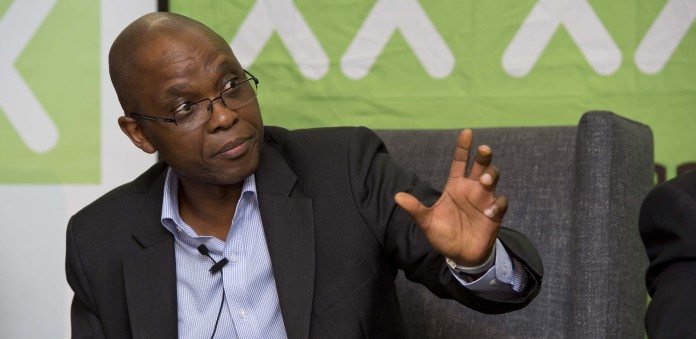
EXXARO Resources is weighing its continued investment in its iron ore and mineral sands investments following another challenging financial year ended December 31 in which net debt ballooned about R2bn to just over R3bn.
The increase in net debt was largely owing to its R3.4bn purchase of Total Coal South Africa, which the company has renamed Exxaro Coal Central Proprietary (ECC). In addition, a downgrade of its credit rating during the year has forced Exxaro to restructure some R8bn in long-term debt facilities.
Exxaro, which has for the last 18 months re-focused its efforts on coal production, has a 19.98% stake in Kumba Iron Ore subsidiary company, Sishen Iron Ore Company (SIOC) and a 43,87% holding in New York-listed Tronox.
Tronox paid a R668m dividend, but no payout was forthcoming from Kumba which is likely to be sold or unbundled to shareholders in terms of parent Anglo American’s plans to divest of its non-core investments. Anglo said that it would take about 18 months to complete divestment from its 70% stake in Kumba.
Exxaro said it hoped to conclude the restructuring of its debt in the second quarter of 2016.
Commenting in notes to its 2015 full-year results announcement, Exxaro said that it will “… continue to review our major investments as markets evolve.
“Part of this includes considering our options following the announcement by Anglo American to dispose of its interest in Kumba Iron Ore Limited at an appropriate time”.
Elsewhere in its notes regarding its short- to medium-term targets, it said it would: “Evaluate our continued shareholding in key investments (mainly SIOC and Tronox) and assess the ability of these investments to contribute to our future earnings and cash flow”.
Speaking in a press roundtable, Mxolisi Mgojo, CEO of Exxaro, said the question of what will happen with its stake in Kumba had “just come up” and that the company had not set its mind to its consequences. Anglo announced it wanted to exit iron ore and coal, as well as a number of other assets, on February 16.
“We have been busy with these results so we haven’t engaged with Anglo. If they are exiting, we need to sit down and understand what that means,” he said. “We have to deploy our capital to the best asset that we have. So the answer is that it’s early days.”
Wim de Kerk, financial director of Exxaro, also pointed out that his company’s investment in Kumba was indirectly held through SIOC whilst Anglo was selling its stake in the parent company, Kumba. “There will be minorities to consider in anything we do,” he said referring to changes in shareholding at the Kumba level.
Falling prices in both mineral sands and iron ore have had a detrimental effect on the contribution of either Kumba or Tronox to Exxaro. Exxaro’s share of a R6bn impairment of Kumba was R1.2bn whilst it booked equity accounted losses on its Tronox stake of some R1.5bn, a doubling of the R568m losses recorded in the 2014 financial year.
Tronox said that its payout in the current financial year would be about 80% lower than in the year under review. “We decided with Tronox last year not to increase our stake to above 50% because then we would have had to consolidate its $3bn in debt on to our balance sheet,” said De Klerk.
“The second peg in the ground regarding Tronox is that we decided to hold our investment and then reconsider it at a later stage,” he said.
Mgojo added that the virtue of turning Exxaro into a coal pure play may only be a strategy for the short- to medium-term as there could be market disruptors, such as the ability to store energy in batteries from renewable sources, which might make base-load coal-fired power stations redundant and leave coal producers vulnerable.
“You would have to be sure that in focusing only on coal that the coal market is going to be a good place to be in the long-term,” said Mgojo. “That needs some thinking about,” he said.
All in all, the 2015 financial was one of gradual recovery for Exxaro. It reined in expansionary capital by 58% or some R1bn, and promised to reduce to input and overhead costs by R300m in the current financial year. It also streamlined its business parting ways with 464 employees which it expects to save it R250m a year in costs.
The market for the minerals Exxaro produces was horrible in 2015, however. Export coal fell to an average of $57/t compared to $72/t in the 2014 financial year. Titanium prices were depressed whilst iron ore slipped to below $40/t at times during the year.
On a net operating profit basis, however, Exxaro was R3.2bn in the black compared to a net operating loss of R3,3bn in the previous financial year. Attributable earnings were R296m (2014: R883m loss) equal to 83 cents per share (2014: 249c loss) with post tax impairment losses dominated in the 2014 financial year.
Headline earnings, which exclude impairments Exxaro suffered and other exceptional items, were 67% lower at R1.6bn year-on-year. Exxaro paid a final dividend of 85 cents per share leaving the total dividend at 150c/share.
De Klerk said Exxaro’s dividend payout did not depend on receiving dividends from its investments in either SIOC or Tronox.










